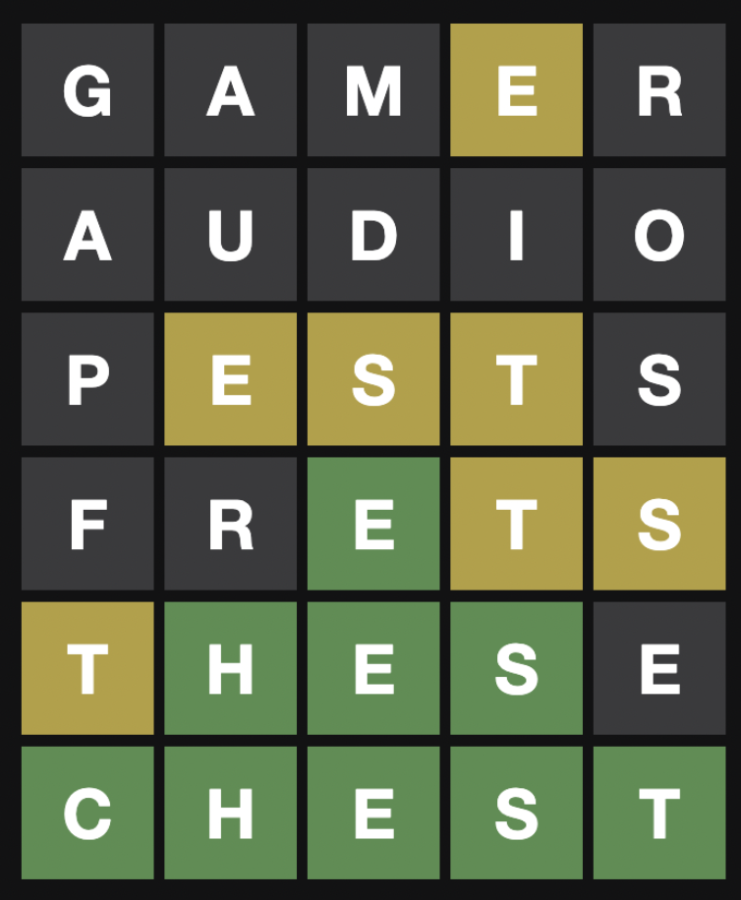Wordle
March 25, 2022
Few times do social phenomena grow so explosively as Wordle. Created by Welsh Software Developer Josh Wardle, Wordle was originally conceived as a fun hobby over the pandemic: something he could play with his girlfriend, eventually giving it to his family. This is where the name comes from, a pun on Wordle’s name, Wordle. It was a nice, quaint love story.
And then it took over the world.
We now live in a post-Wordle society. The game has exploded in popularity, spanning from Twitter timelines to Television. Wardle received an undisclosed sum, stated as in the seven-digits, to sell it to the New York Times. Even the GOP tweeted about it.
Sophomore Adrian Warminski, when asked, speculated that “probably like 30%” of his friends played the game regularly.
But what is it? Wordle is a simple game. It challenges players to find a unique five-letter word with a set amount of guesses. Each incorrect guess reveals information about the final word, and the objective is to guess it in as few guesses as possible. It’s a simple formula, but one with infinite capability for replayability – that is, only once a day. Part of the addictiveness of the game is the fact that the word refreshes every twenty-four hours, making it a shared experience among those playing that day. Warminski described Wordle as “hangman but on a grid and for Twitter users.”
Of course, waiting is not for some. The addictive nature of Wordle drives some to imitation games, a byproduct of the game’s flashpoint success.
“I love Wordle; it gives me an immediate kick and high,” Warminski said.
Wordle imitations run the gauntlet from creative to absurd. Some make you guess songs from the opening bars, some make you guess swear words in four characters and some even make you guess a nation by its exports.
Not all, of course, are on the Wordle train, however. Sophomore Om Kamat, when asked about the trend, launched into a frenzied rant, concluding that “wordle is a waste of time.”
“I’d rather have a game where you are given a bunch of variables, and you write physics equations from them and gain a score that way,” Kamat said.
Kamat’s opinions are not said to be held by the mainstream, although he later informed the Sword & Shield that he would be creating his Physics-based Wordle alternative as part of his AP Computer Science final project.
Love it or hate it though, one thing is clear about Wordle: it’s here to stay. It may not always be in the forefront of life, yet it lingers: a permanent fixture, a small joy in the background radiation of an otherwise sometimes stressful life.
As Penn Wardle, the creator, told the New York Times: “I think people kind of appreciate that there’s this thing online that’s just fun.”
Sometimes, in today’s fast-moving world, a game that invites us to, for a few minutes, slow down and play some words is what’s needed.





